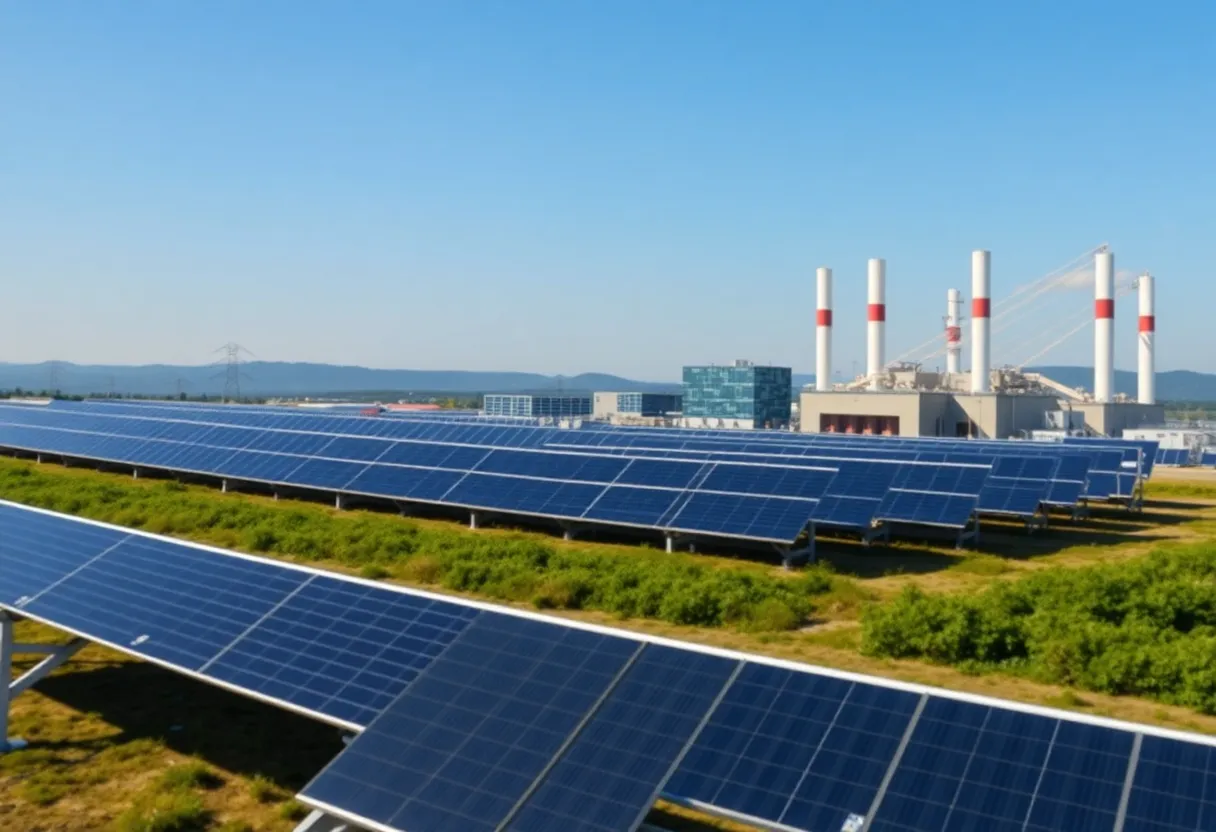News Summary
As temperatures rise in Savannah, health officials are warning residents to take precautions against extreme heat. Dr. Tim Connelly emphasizes the dangers of heat-related illnesses, urging people to stay hydrated, avoid the sun during peak hours, and utilize cooling shelters when necessary. The potential health risks include heat exhaustion, heat cramps, heat stroke, and others. With local initiatives in place, including cooling shelters and education on symptoms, the community is encouraged to look out for vulnerable individuals during this heat wave.
Savannah residents are being warned about the dangers of extreme heat as doctors emphasize the need for safety precautions to prevent heat-related illnesses. According to Dr. Tim Connelly from Memorial Health, heat-related conditions are the most common cause of weather-related deaths, particularly during the sweltering summer months when Savannah sees nearly 100 days with temperatures exceeding 90 degrees.
As temperatures rise, individuals are advised to prioritize hydration by consuming water and beverages that contain electrolytes. Staying indoors during peak heat hours, specifically between 1 p.m. and 5 p.m. on extremely hot days, is highly recommended. If air conditioning is not available, purchasing a window unit can provide a much-needed cool space for under $200, helping to safeguard against heat-related illnesses.
The symptoms of heat-related illnesses vary in severity and may include:
- Heat Exhaustion: characterized by heavy sweating, weakness, fatigue, headache, dizziness, nausea, vomiting, thirst, and decreased urine output.
- Heat Cramps: typically involve painful muscle cramps and heavy sweating.
- Heat Stroke: indicates a severe medical emergency, presenting symptoms such as a very high body temperature, altered mental status, headache, confusion, hot dry skin, or profuse sweating, and loss of consciousness.
- Heat Syncope: results in fainting or dizziness, particularly when standing up too quickly.
- Rhabdomyolysis: symptoms include muscle cramps, dark urine, and general weakness.
To manage these conditions, individuals should take specific actions depending on the symptoms experienced:
- For Heat Exhaustion, it is essential to move to an air-conditioned environment, lie down, loosen clothing, and drink cold water or sports drinks. If symptoms do not improve, medical attention is necessary.
- In case of Heat Cramps, stop any physical activity, move to a cooler area, and consume fluids at regular intervals while avoiding salt tablets.
- A Heat Stroke requires immediate emergency services. Cooling the person with wet clothes or cool baths can be beneficial, but liquids should not be given if the individual is confused.
- For Heat Syncope, sitting or lying down in a cool location and drinking fluids slowly is advisable.
- Rhabdomyolysis necessitates stopping any strenuous activity, increasing hydration, and seeking medical care.
During heat waves, the City of Savannah will open cooling shelters at various community centers and libraries for residents and provides safety tips for managing energy bills during intense heat. Individuals can access free upgrades for heating and cooling systems through Georgia Power’s EASE program if they qualify. Additionally, the American Red Cross urges everyone to check on vulnerable community members—especially children, older adults, and those without adequate cooling systems—during extreme heat events.
The Red Cross further recommends that individuals drink a cup of water every hour and refrain from consuming sugary, caffeinated, or alcoholic beverages, which can contribute to dehydration. Parents should also monitor infants for signs of dehydration by checking for fewer wet diapers.
For those who are experiencing homelessness, organizations like Union Mission have opened day centers as cooling spaces during extreme heat conditions. Local regulations also include the temporary suspension of horse-drawn carriages on excessively hot days to protect both animals and passengers from heat stress.
Overall, it is crucial for all Savannah residents to remain vigilant during these extreme heat warnings. Ignoring the warnings and symptoms can result in severe health consequences. In extreme cases, individuals should contact emergency services if symptoms worsen or do not improve.
Deeper Dive: News & Info About This Topic
HERE Resources
Severe Thunderstorms to Impact Savannah Region
Savannah Under Heat Advisory Amid Weather Changes
Heat Advisory Issued for Savannah as Temperatures Soar
Water Contamination Discovered in Gasoline at YUG Food Mart
Additional Resources
- WTOC: Local doctor explains heat-related illnesses
- Wikipedia: Heat Exhaustion
- Savannah Now: Tips to staying cool in summer sun
- Google Search: Heat Related Illnesses
- American Red Cross: Safety Tips for Extreme Heat
- Google Scholar: Heat Related Illnesses
- Savannah Business Journal: Red Cross issues advice to stay safe during extreme heat
- Encyclopedia Britannica: Heat Exhaustion

Author: STAFF HERE SAVANNAH WRITER
The represents the experienced team at HERESavannah.com, your go-to source for actionable local news and information in Savannah, Chatham County, and beyond. Specializing in "news you can use," we cover essential topics like product reviews for personal and business needs, local business directories, politics, real estate trends, neighborhood insights, and state news affecting the area—with deep expertise drawn from years of dedicated reporting and strong community input, including local press releases and business updates. We deliver top reporting on high-value events such as Savannah Music Festival, St. Patrick's Day Parade, and Savannah Jazz Festival. Our coverage extends to key organizations like the Savannah Area Chamber of Commerce and United Way of the Coastal Empire, plus leading businesses in aerospace, education, and logistics that power the local economy such as Gulfstream Aerospace, Savannah College of Art and Design, and Colonial Group. As part of the broader HERE network, including HEREAtlanta.com and HEREAugusta.com, we provide comprehensive, credible insights into Georgia's dynamic landscape.



